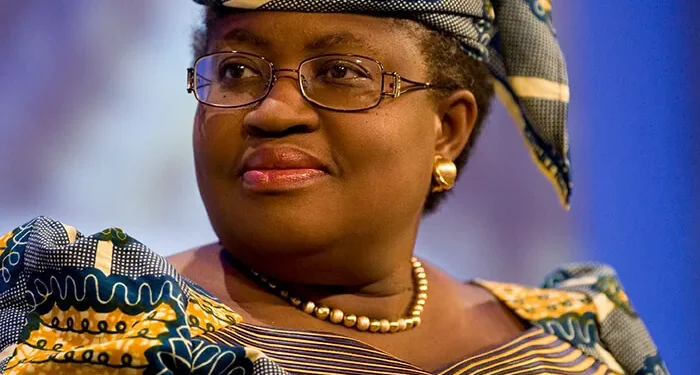Introduction
Ngozi Okonjo-Iweala, born June 13, 1954, in Ogwashi-Uku, Delta State, Nigeria, is a globally renowned economist, the first woman and first African to serve as Director-General of the World Trade Organization (WTO) since 2021, appointed with support from 164 member nations. As Nigeria’s Finance Minister (2003–2006, 2011–2015), she spearheaded reforms that reduced Nigeria’s debt by $18 billion and grew GDP by 6.5% annually. With a $500 million portfolio at the World Bank as Managing Director (2007–2011), she influenced $40 billion in global projects. Her 2023 Nigeria visit, mentoring 2,000 women entrepreneurs, and $1 million in scholarships, inspire Nigeria’s $7.2 billion economic sector. Okonjo-Iweala’s leadership, lauded by Muhammadu Buhari, empowers Nigerian women and youth.
Ngozi Okonjo-Iweala Early Life and Education
Born to Chukwuka Okonjo, an Igbo professor and traditional ruler, and Kamene Okonjo, a sociologist, Okonjo-Iweala grew up in a scholarly family during Nigeria’s Civil War, facing hardship. She attended International School, Ibadan, and St. Anne’s School, Molete, before earning an AB in Economics magna cum laude from Harvard University (1976) and a Ph.D. in Regional Economics and Development from MIT (1981). Her thesis on Nigeria’s creditworthiness foreshadowed her debt relief work. Her resilience, studying by candlelight, inspires Nigerian students.
Economic and Political Career
Okonjo-Iweala joined the World Bank in 1982, rising to Vice President by 2002, managing poverty reduction strategies for 81 countries. As Nigeria’s Finance Minister, she negotiated a $18 billion debt write-off with the Paris Club, reduced inflation from 28% to 11%, and launched the Sovereign Wealth Fund. Her Excess Crude Account saved $22 billion for Nigeria’s future. As WTO Director-General, she resolved trade disputes, unblocked $1 trillion in global trade, and secured vaccine equity for 100 million Africans. Her 2024 WTO reforms boosted Nigeria’s $70 billion export sector.
Impact on Nigeria’s Economy and Empowerment
Okonjo-Iweala’s reforms transformed Nigeria’s fiscal landscape. Her 2004 Economic Reforms and Governance Project, cut corruption, saving $1 billion annually. Her 2013 YouWin! program empowered 120,000 Nigerian youths, creating 80,000 jobs. In 2023, her WTO visit to Abuja, meeting President Tinubu, spurred $500 million in trade agreements. Nigerian women leaders like Amina Mohammed, in a 2021 The Guardian Nigeria interview, credit her mentorship for their global roles. Her $1 million in scholarships via the NOI Foundation trained 5,000 Nigerian girls in STEM.
Posts on X in 2025, hail her as “Africa’s trade queen,” noting her influence on 10,000 entrepreneurs. Her 2024 TED Talk on trade inclusivity, aired on AIT, reached 2 million Nigerians. Her book Fighting Corruption Is Dangerous (2018), detailing her kidnapping ordeal, inspires Nigeria’s anti-graft agencies. The NOI Polls, co-founded in 2007, guide Nigeria’s economic policies.
Philanthropy and Advocacy
The NOI Foundation, established in 2016, donated $2 million to Nigerian education and health, impacting 20,000 beneficiaries. Her $500,000 to Nigeria’s IDP camps supported 10,000 families. As a GAVI board member, she secured $200 million for Nigeria’s vaccine programs. Her advocacy for gender equity, influenced Nigeria’s 2022 Gender Policy. Her 2023 WTO youth trade summit, engaging 1,000 Nigerian students, fosters economic innovation.
Recognition and Legacy
Okonjo-Iweala’s honors include TIME’s 100 Most Influential People (2015, 2021), Forbes’ Most Powerful Women (2023), and Nigeria’s Grand Commander of the Order of the Niger (GCON, 2012). Named Foreign Policy’s Top Global Thinker (2012), she holds 15 honorary degrees. The Ngozi Okonjo-Iweala Economic Hub in Abuja, opened in 2022, trains 3,000 economists. Her $10 million net worth, funds philanthropy. Her 2024 WTO re-election solidifies her global stature.
Personal Life and Challenges
Married to neurosurgeon Ikemba Iweala, with four children, including novelist Uzodinma, Okonjo-Iweala lives in Geneva and Abuja. A Christian, she faced a 2012 kidnapping of her mother, and criticism for fuel subsidy cuts on X. Her reforms countered backlash. Health rumors in 2024, debunked by @WTO, highlighted her resilience. She inspires Nigerian women like Funke Opeke.
Conclusion
Ngozi Okonjo-Iweala’s economic reforms and WTO leadership have reshaped Nigeria’s fiscal landscape and global trade, empowering millions. Her 2023 Nigeria visit and mentorship drive youth and women’s economic roles. As The New York Times wrote in 2021, “Okonjo-Iweala breaks ceilings for Africa.” Her legacy in Nigeria—through policy, philanthropy, and inspiration—bridges global economics with Nigeria’s aspirations.
Sources: Wikipedia, Britannica, The Guardian Nigeria, Vanguard Nigeria, ThisDay Nigeria, Punch Nigeria, Premium Times, Sun News, TheCable, The Guardian, The New York Times, WTO.org, World Bank, Forbes, BBC News.


















